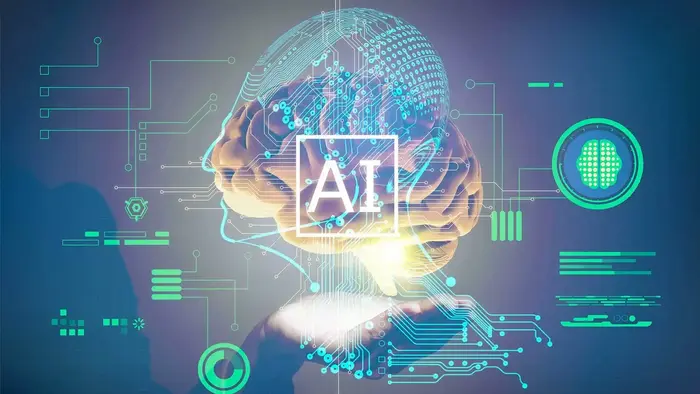In an era of rapid technological progression, artificial intelligence (AI) sits at the forefront of innovation, redefining what’s possible. AI challenges existing paradigms as a catalyst for change, augmenting human capabilities and automating complex tasks.
This document delves into the multifaceted role of AI in technological advancements, exploring how it transforms industries, reshapes human interactions, and raises crucial ethical questions.
AI Transforming Industries
- Revolutionizing Healthcare with AI Diagnostics: AI’s ability to rapidly analyze and interpret medical data promises to revolutionize healthcare by providing faster, more accurate diagnoses. It aids in detecting diseases in their early stages, personalized treatment plans, and enhancing predictive care.
- Streamlining Manufacturing Through Smart Automation: In the manufacturing sector, AI introduces smart automation that optimizes production workflows, increases efficiency, and reduces operational costs. AI-powered robots and systems can also significantly improve safety by taking on hazardous tasks.
- Financial Sector Disruption by AI Analysis and Prediction: AI transforms the financial industry by offering sophisticated tools for risk analysis, fraud detection, and customer service personalization. Furthermore, AI algorithms are reshaping trading and investment strategies with predictive analytics.
- AI in Transportation: Autonomous Vehicles and Traffic Management: The transportation sector is on the cusp of a major overhaul with the introduction of AI in autonomous vehicles, optimizing routes, reducing traffic congestion, and enhancing passenger safety. AI also plays a pivotal role in managing complex traffic networks and infrastructure.
AI Reshaping Human Interactions
- Personal Virtual Assistants and AI-Driven Customer Service: AI-powered personal assistants have become an integral part of daily life for many, managing schedules, answering questions, and even controlling smart home devices. In customer service, AI enables real-time assistance through chatbots and virtual agents, quickly resolving queries and improving user experience.
- AI’s Role in Social Media Algorithms and Personalization: Social media platforms leverage AI to curate personalized content feeds, target ads, and enhance user engagement. These algorithms are adept at learning individual preferences, influencing what news, stories, and updates users see.
- The Future of Workplace Collaboration with AI Tools: AI redefines workplace collaboration by facilitating more intuitive communication tools, smarter project management apps, and virtual meeting assistants. AI tools are enabling teams to work together more effectively, even with members dispersed globally, creating a new paradigm of productivity. With the integration of AI detectors, companies can now ensure the authenticity of contributions and safeguard against fabricated content, which is becoming increasingly important.
Ethical Considerations of AI
As AI continues to permeate every aspect of our lives, addressing the ethical considerations accompanying its pervasive growth is essential. Concerns about privacy, bias, and accountability are increasingly salient.
For instance, using AI in data analytics and surveillance must be carefully balanced with individual privacy rights.
Moreover, machine learning algorithms can inadvertently perpetuate existing biases, generating outcomes that unfairly discriminate against certain groups.
Additionally, AI’s decision-making processes can be opaque, raising questions about accountability when errors occur or when AI-driven actions have harmful consequences.
Ensuring responsible AI utilization involves the development of ethical frameworks, policies, and practices designed to guide AI research and applications, emphasizing transparency, responsibility, and human well-being above all.
The Road Ahead: AI and the Future of Innovation
As we look to the future, artificial intelligence is poised to drive unprecedented innovation across various domains. AI research is making strides toward creating more sophisticated and generalizable forms of intelligence with the potential to tackle problems beyond the capabilities of narrow AI systems used today.
Advancements in machine learning, natural language processing, and robotics suggest a future where AI augments human abilities and co-creators in scientific discoveries and creative pursuits.
The symbiotic relationship between AI and human intelligence is an important future aspect. Rather than viewing AI as a replacement for human labor, experts emphasize its role as an enhancer of human creativity and decision-making.
As AI becomes more integrated into society, its influence on job structures may foster new careers demanding skills that technology cannot replicate — such as empathy, moral judgment, and innovative thinking.
The road ahead for AI is challenging; balancing innovation with ethical considerations will be paramount. Key questions around the governance of AI, the equitable distribution of its benefits, and the prevention of malicious use of AI technologies will need to be addressed.
A collective, interdisciplinary effort is necessary to ensure that artificial intelligence evolves in a way that benefits all of humanity and safeguards the integrity of our social structures.


